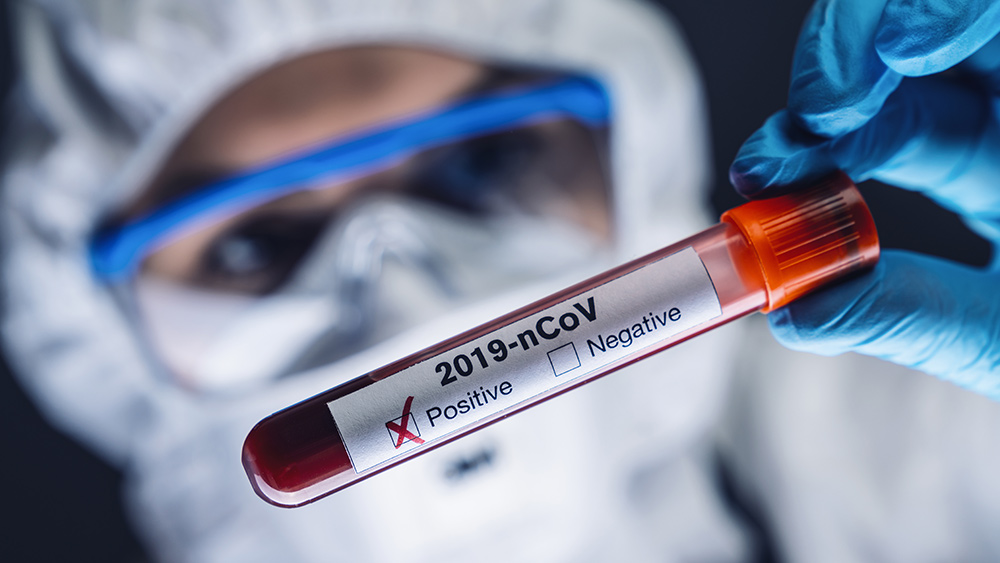Coronavirus update: Gov. Abbott rolls back reopening plan as Texas reports record new cases
06/30/2020 / By Ralph Flores

After battering the Northeast early this year, the coronavirus is now barreling towards the rest of the United States. In the South, Texas and Florida are among the hardest-hit states, with both reporting record numbers of new cases this week. Texas logged almost 6,000 new cases –its highest one-day record, to date – on Thursday, while Florida’s health department reported over 8,900 new cases in a provisional report early Friday.
In an executive order released Friday, Texas Gov. Greg Abbott announced the closure of all bars and reduction of seating capacity in restaurants amid soaring coronavirus cases and hospitalizations.
“As I said from the start, if the positivity rate rose above 10%, the State of Texas would take further action to mitigate the spread of COVID-19,” Abbott said in a statement. “At this time, it is clear that the rise in cases is largely driven by certain types of activities, including Texans congregating in bars.”
In the new coronavirus edict, establishments that get more than 51 percent of their profit from alcohol sales, such as bars and liquor stores, are to close their storefronts by Friday noon; delivery and takeout, even for alcoholic products, will be allowed. It also orders restaurants to cut back on dine-in service and reduce their indoor occupancy to 50 percent. Rafting and tubing businesses are ordered closed, and outdoor gatherings of more than 100 people must first be approved by local governments.
The rollbacks come a day after Abbott said that he would “hit pause” on the state’s reopening plan. On Thursday, he ordered all elective medical procedures to be postponed in counties that included that state’s largest cities – Houston, Dallas, San Antonio and Austin – in preparation for a surge in new COVID-19 patients.
“The last thing we want to do as a state is go backwards and close down businesses,” added Abbott.
New cases soar ahead of 4th of July holiday
On Friday, Harris County Judge Lina Hidalgo placed the county to its highest COVID-19 threat level, citing a “severe and uncontrolled” outbreak. The county, which includes the city of Houston, has reported an exponential increase in new cases, which could push its healthcare to the brink.
If these spikes in new cases and hospitalizations continue, Houston – the fourth most populous city in the U.S. – could be the country’s next epicenter, warned Dr. Peter Hotez, dean of the Baylor College of Medicine National School of Tropical Medicine.
Low-income neighborhoods are more likely to be the city’s next hotspots since these are densely populated and have more people with chronic conditions – the latter being a significant risk factor for COVID-19 – according to Hotez. Current figures in the country reveal a nearly vertical trajectory in new cases, a trend seen in earlier hotspots like New York. (Related: Coronavirus surges in Texas: Houston hospitals at max capacity in 11 days… 5,000 new cases per day… YOUNG people now hit the hardest.)
“We are potentially facing a very serious public health threat,” he added. “We can’t go there.”
Over half of the U.S. report spikes in new cases
On Friday, the U.S. reported more than 45,000 new coronavirus cases – a new record – to bring the country’s total caseload to 2,492,246, according to data from Johns Hopkins University. In particular, 34 states across the U.S., including Texas, Arizona, California, Florida and Nevada, reported a 5% increase in new cases, based on a seven-day average.
Dr. Anthony Fauci, the country’s top infectious disease expert, warned that an increase in new cases could also indicate a looming increase in deaths. He said that even as the country’s death toll is declining, “that doesn’t mean that you’re not going to start seeing them coming up now.”
Fauci, together with other members of the White House coronavirus task force, also issued a plea for younger people to follow the guidelines and limit their risk as much as possible. During Friday’s press briefing, he added that younger adults can still be asymptomatic carriers of COVID-19 – even if they feel healthy – and infect people who are more vulnerable to serious disease.
“Ultimately, you will infect someone who’s vulnerable,” he said. “That may be somebody’s grandmother or grandfather, uncle who’s on chemotherapy and who’s on radiation or chemotherapy, or a child who has leukemia.”
Pandemic.news has more on the ongoing Wuhan coronavirus outbreak.
Sources include:
Tagged Under: coronavirus, covid-19, disease, Flu, government, hoax, Houston, infection, infections, outbreak, pandemic, superbugs, Texas, virus



















